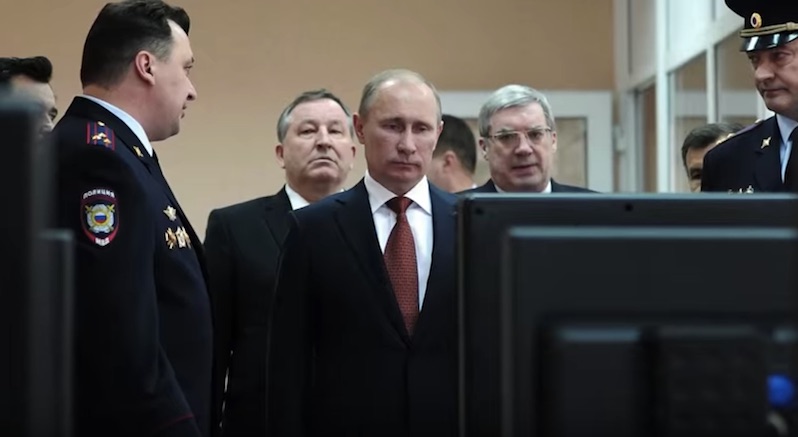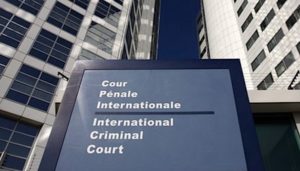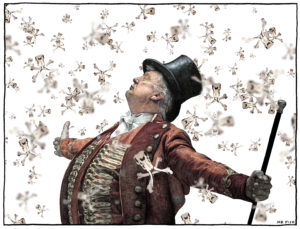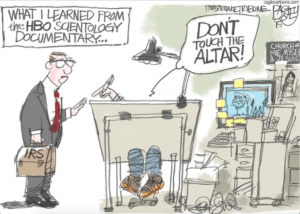‘Zero Days’ Film Review: When Warfare Goes Viral, Guess Who Loses?
Compared to the era-defining new infoweapon Stuxnet, Big Brother is the stuff of child’s play. Compared to the era-defining new infoweapon Stuxnet, Big Brother is the stuff of child’s play. "Zero Days" trailer via YouTube
"Zero Days" trailer via YouTube
“Zero Days” trailer via YouTube
Compared to Stuxnet, Big Brother is the stuff of child’s play. Next to this era-defining new infoweapon, George Orwell’s dystopian authoritarian regime gets demoted to a quaint relic of a time when the surveillance state reigned supreme in any gallery of public offenders, imagined or actual.
As it turned out, Orwell’s “1984” made for some solid prognostication material as well as iconic fiction. But as “Taxi to the Dark Side” filmmaker Alex Gibney’s latest documentary “Zero Days” throws into terrifying relief, despite its virtual roots Stuxnet is all too real. Even scarier is the impact this emergent strain of digital weaponry is capable of making on the real world — and the thing is as hard to detect as it is to contain.
Of course, abuses of government oversight and control mechanisms are still rampant, and they figure into the techno-political stew that produced Stuxnet. In brief, Stuxnet is a highly sophisticated breed of marauding malware, a 21st-century Frankenvirus that sprang from the worst impulses and best programmers available to a secret partnership of three world powers.
Those would be the U.S., the U.K. and Israel, according to Gibney’s investigation. But not one in that trio is willing to openly admit its intelligence agencies’ involvement in Stuxnet — or “Olympic Games,” as the mission was known in official circles — not to mention in the even more significant “Nitro Zeus” project that Gibney’s sources reveal on camera. So, they can’t be held accountable.
Here’s where things get undemocratic really fast. Regulations for this brand of combat are currently impossible to put on paper — as they eventually were in the nuclear age — if the artillery is invisible and if implicated parties are unwilling to own their places at the negotiating table.
And then there’s the rest of us. “How can we have a debate if everything is secret?” one alarmed source wonders aloud in “Zero Days.” Spoiler alert: “We” can’t. But regular people from the targeted nation of Iran, as well as civilians from the secretive aggressor states, can and no doubt will bear the brunt of their leaders’ power move to loose this cyber-Kraken on a globalized, wired world.
Stuxnet was designed to operate independently and invisibly once launched, boring into machines controlling the uranium enrichment system at the Natanz nuclear plant in Iran and quietly mucking up the works. For a while, starting in 2010, it did, perplexing and mortally endangering teams of engineers overseeing rows of centrifuges provided by their nuclear benefactor, Pakistan’s A.Q. Khan. When that equipment began mysteriously malfunctioning, the source of their problems couldn’t at first be traced.
But the Israelis eventually tipped the world off to Stuxnet’s points of origin, the audience is told by a digitally disguised whistleblower in Gibney’s film. Israeli intelligence forces allegedly went rogue with the Stuxnet code, altering it until it bore certain identifying characteristics and thus blowing the alliance’s cover. In one stroke, heads of rival states — President Vladimir Putin in Russia, then-President Mahmoud Ahmadinejad in Iran, for starters — were given the go-ahead to invent their own Olympic Games with impunity.
In another recent cyber-nightmare documentary, Laura Poitras’ “Citizenfour,” Edward Snowden makes an unnerving comment to the effect that one reason he released classified information from the National Security Agency to the public is that he sensed the time was quickly approaching when no one person would be able to access, or grasp the significance of, the information contained in his NSA leaks, much less arrive at the decision to leak it. In “Zero Days,” this troubling theme of unintelligibility also worms its way into the plot, as different factions of the U.S. government are shown having collective meltdowns on Capitol Hill over the “discovery” of the Stuxnet virus, while just across town their peers in the intelligence community are busily hatching its successor.
To be clear, this stupefying development blurs the domain of brick and mortar with zeros and ones when it comes to the future of warfare. “We are now in a post-Stuxnet world,” an interviewee declares, and it’s hard to argue with that statement after following Gibney’s lead down this virtual rabbit hole. In addition to nuclear facilities, municipal power grids, communication and transportation systems and other supports for modern living could be turned into lethal devices. Even structures that might seem immune to online manipulation are vulnerable.
In short, what Stuxnet has ushered in has all the makings of “full-scale cyberwar without attribution,” as the film’s pixelated source puts it, and without rules. And although certain technical aspects of Gibney’s newest effort are hard for a lay audience to grasp and some storytelling tricks just fall flat, as in a corny twist toward the end, the film’s overall effect is potent enough to make assembling prepper kits and embracing a next-level bunker lifestyle suddenly seem worth the hassle.
It’s ultimately not necessary to have “Mr. Robot”-level programming knowledge to read the coding on the wall. Michael Hayden did. Like all the other interviewees grilled in “Zero Days,” the Bush II-era NSA director and former CIA chief wasn’t willing to comment about U.S.’ involvement in the Stuxnet program, but he did know a game-changer when he saw it. “This has the whiff of August 1945,” Hayden says, recalling the instant he first understood what Stuxnet meant.
He’s right — and in this moment of minimum government accountability and maximum global instability, the whole thing stinks to high heaven.
Your support is crucial…With an uncertain future and a new administration casting doubt on press freedoms, the danger is clear: The truth is at risk.
Now is the time to give. Your tax-deductible support allows us to dig deeper, delivering fearless investigative reporting and analysis that exposes what’s really happening — without compromise.
Stand with our courageous journalists. Donate today to protect a free press, uphold democracy and unearth untold stories.




